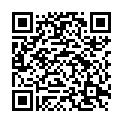|
|
|
| Module code: FT69 |
|
3V+1U (4 hours per week) |
|
4 |
| Semester: 6 |
| Mandatory course: no |
Language of instruction:
German |
Assessment:
Written exam
[updated 21.06.2021]
|
FT69 Automotive Engineering, Bachelor, ASPO 01.10.2019
, semester 6, optional course, technical, course inactive since 27.02.2023
|
60 class hours (= 45 clock hours) over a 15-week period.
The total student study time is 120 hours (equivalent to 4 ECTS credits).
There are therefore 75 hours available for class preparation and follow-up work and exam preparation.
|
Recommended prerequisites (modules):
FT10 Applied Metrology
[updated 27.02.2023]
|
Recommended as prerequisite for:
|
Module coordinator:
Prof. Dr. Xiaoying Wang |
Lecturer:
Prof. Dr. Xiaoying Wang
[updated 27.02.2023]
|
Learning outcomes:
Electromagnetic compatibility (EMC) is not only the basic requirement of any electronics development in the automotive sector, but also a legally required product specification. In this module, students will learn the basic terms, principles and topics related to EMC. After successfully completing this module, students will be able to understand the basic requirements of EMC in vehicles and analyze and identify the causes of interference problems in circuits and systems.
[updated 21.06.2021]
|
Module content:
- Interference model: interference source, coupling mechanism, interference sink
- Push-pull and common-mode interference
- Signals in time and frequency domain
- Filters
- Near field, far field
- Shielding
- Remedial measures
- Automotive EMC tests: immunity and emission tests
- EMC standards, directives and laws
[updated 21.06.2021]
|
Teaching methods/Media:
Blackboard, projector, lecture notes
[updated 21.06.2021]
|
Recommended or required reading:
- Kai Sorgeest, Elektronik in der Fahrzeugtechnik, Springer, Auflage:4, 2021
- A.J. Schwab, W. Kürner, Elektromagnetische Verträglichkeit, Springer, Auflage:6, 2011
- J. Franz, EMV: Störungssicherer Aufbau elektronischer Schaltungen, Vieweg+Teubner Verlag, Auflage:4, 2011
- D. Stotz, Elektromagnetische Verträglichkeit in der Praxis, Springer Vieweg, Auflage:2, 2019
- P. G. André, K Wyatt, EMI Troubleshooting Cookbook for Product Designers, Institution Engineering & Tech, 2013
[updated 21.06.2021]
|


